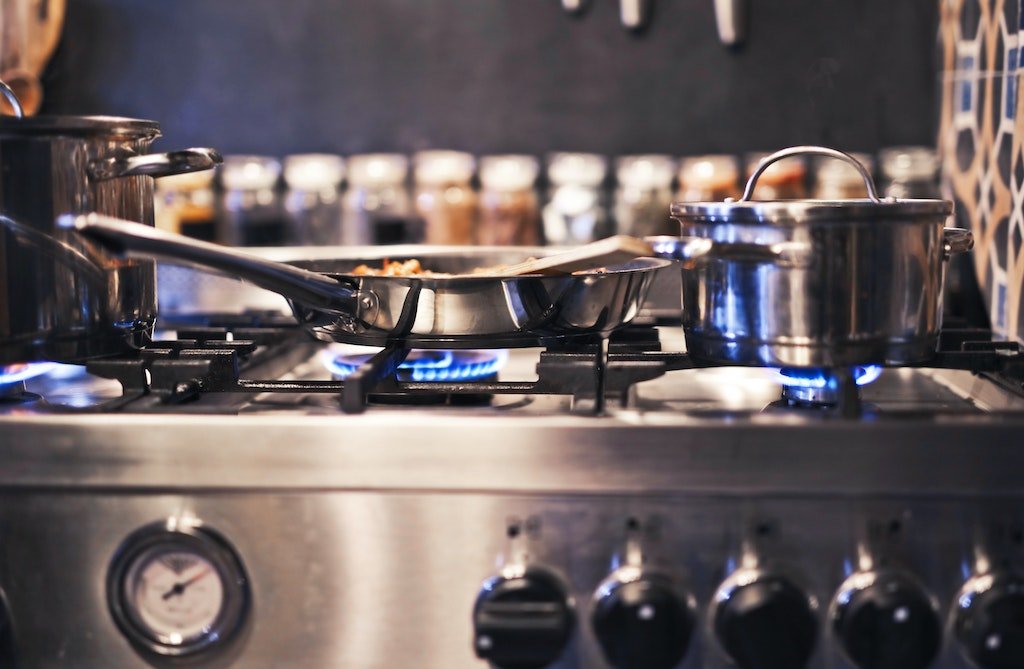Do Home Warranties Cover Ovens, Ranges, and Cooktops?
Owning a home is wonderful but comes with its fair share of responsibilities. One of those responsibilities is ensuring that your home kitchen appliances, like ovens, ranges, and cooktops, are in good working order. But what happens when they break down or need repairs? This is where a home warranty can come in handy.
A home warranty is like a safety net for unexpected issues with your kitchen appliances like an oven, range, or cooktop. It can save you from the stress and high costs of emergency repairs and also helps you budget for your home expenses.
Now, you might wonder, “Do home warranties cover ovens, ranges, and cooktops?” Let’s get into the details of that.
Are ovens, ranges, and cooktops covered under a home warranty?
Home warranties generally cover repairing or replacing kitchen appliances like ovens, ranges, and cooktops if they break down due to normal wear and tear. This encompasses a variety of stove types, including gas, electric, and induction stoves. However, the extent of coverage can differ, and it also hinges on the particulars of your plan.
Generally, your home warranty plan may encompass:
Mechanical parts and components of kitchen appliances, such as ovens, ranges, and cooktops.
Both built-in and freestanding appliances, depending on the terms of your contract.
Repair expenses if a covered appliance or system breaks down due to normal use.
Replacement costs if the covered appliance or system cannot be repaired.
Nonetheless, only some things fall under the purview of a home warranty. There may be specific exclusions or scenarios in which coverage could be denied, including:
Cosmetic elements or non-essential features like knobs, dials, or lighting.
Appliances or systems that have been improperly installed or modified.
Appliances that haven’t been adequately maintained or cleaned.
Damages resulting from improper use or accidents.
Pre-existing conditions or malfunctions were present before the home warranty contract came into effect.
Certain components or parts might be excluded, as outlined in your contract.
If the cost of repair or replacement exceeds a certain limit, you might need to cover the excess amount.
It’s important to remember that the specifics of what is covered and what isn’t can vary widely among home warranty providers. Take the time to carefully review your contract and have a conversation with your provider to understand coverage, limitations, and potential out-of-pocket expenses. If necessary, you can often add additional coverage for items not included in your base plan for an additional fee. This allows you to tailor your home warranty to best suit your requirements and ensure adequate protection for appliances like ovens, ranges, and cooktops.
Porch Whole Home Warranty coverage of ovens, ranges, and cooktops
Porch Whole Home Warranty plan for electrical systems includes coverage for various components of the Cooking Range/Oven/Cooktop – Primary. The covered items encompass crucial elements that contribute to the proper functioning of these appliances. The covered components include:
Control Timers
Latch Assemblies
Electronic Components
Igniter and Pilot Assemblies
Internal Wiring
Motors
Power Cords
Switches
Relays
Control Board
Thermostats
Touch Pads
Tips for maintaining ovens, ranges, and cooktops
Ensuring the longevity and optimal functioning of your ovens, ranges, and cooktops is a matter of consistent and careful maintenance. Proper upkeep extends the lifespan of these appliances and helps keep your home warranty intact. Remember, warranty providers often require evidence of regular maintenance in the event of a claim.
Regular Cleaning: Routine cleaning is an indispensable part of appliance maintenance. Over time, food particles, grease, and other debris can accumulate, potentially leading to damage or diminished performance. It’s crucial to clean your oven, range, and cooktop regularly, using cleaning products approved by the manufacturer to avoid inadvertently causing damage.
Ovens: Perform a deep cleaning every three to six months or use the self-cleaning function if your oven has one. Remove racks and clean them separately. For manual cleaning, use a mixture of baking soda and water, let it sit overnight, then wipe clean.
Ranges and Cooktops: Wipe down after each use to prevent food residue and grease buildup. For stubborn spots, a gentle baking soda scrub can be useful.
Routine Inspection: Regular self-inspection of your appliances can help detect early signs of damage or malfunction. Look out for any unusual noises, heating inconsistencies, or electrical issues. Addressing these issues promptly can prevent minor problems from becoming major repairs.
Professional Servicing: Certain appliance maintenance aspects require a professional's expertise. For instance, gas stoves should undergo a yearly professional check-up to ensure the gas lines are safe and the appliance works efficiently. Regular servicing can also help detect any underlying issues that may not be noticeable during a routine self-inspection.
Adherence to User Manual Guidelines: Your appliance’s user manual is a treasure trove of information and guidance. It provides specific instructions about usage, cleaning methods, troubleshooting common issues, and recommended servicing intervals. Always adhere to these guidelines to maintain the appliance correctly and avoid inadvertently voiding your home warranty.
Proper Use: While it may seem obvious, using your oven, range, or cooktop correctly goes a long way in preserving its lifespan. Avoid using oversized pots and pans on your cooktops, do not line your oven with aluminum foil as it could interfere with heat distribution, and refrain from using your oven’s door as a makeshift shelf.
Ventilation: Ensure that your kitchen is well-ventilated. Excess heat and smoke can damage the internal components of your appliances, and good ventilation can help maintain their performance.
Implementing these maintenance tips can help keep your ovens, ranges, and cooktops in top-notch condition, enhancing their performance, extending their lifespan, and ensuring that your home warranty remains in good standing. Remember, a well-maintained appliance serves you better and saves you from unnecessary repair and replacement costs in the long run.
Home warranties like Porch Warranty can cover ovens, ranges, and cooktops, providing much-needed protection for these indispensable kitchen appliances. This coverage helps homeowners manage unexpected expenses, providing peace of mind in knowing that they are covered when unexpected repairs or replacements arise. However, remember that the coverage specifics can vary, and routine maintenance of these appliances is critical. Always review your home warranty terms and ensure you’re performing regular maintenance to keep these appliances in optimal condition. In doing so, you ensure a smooth home warranty experience and prolong the lifespan of your essential kitchen workhorses.

